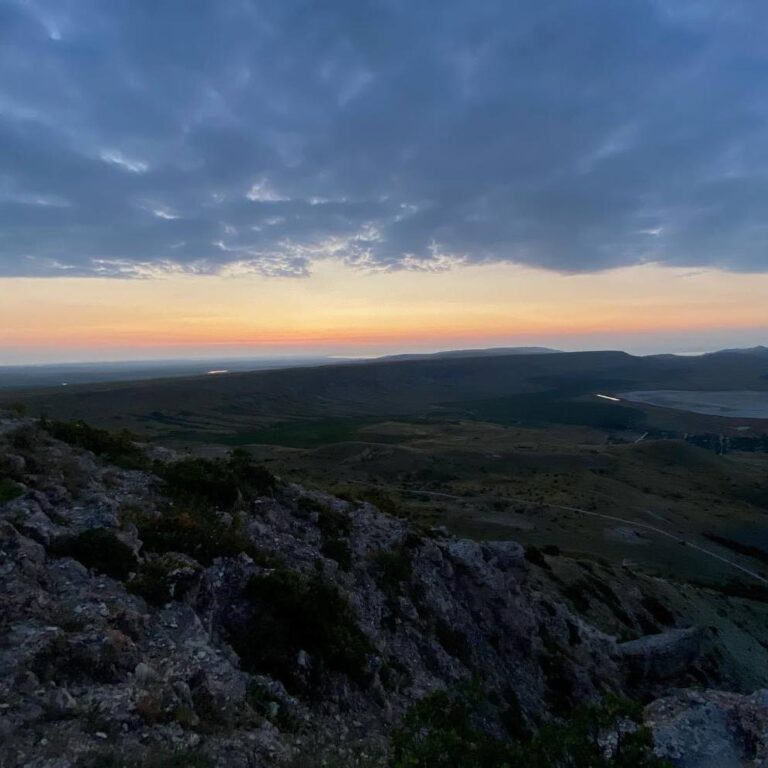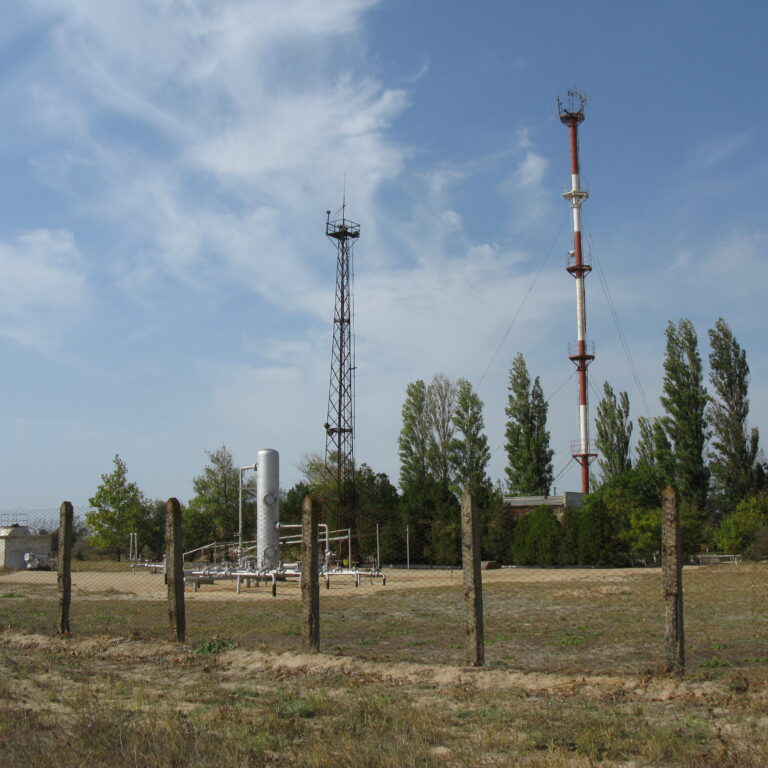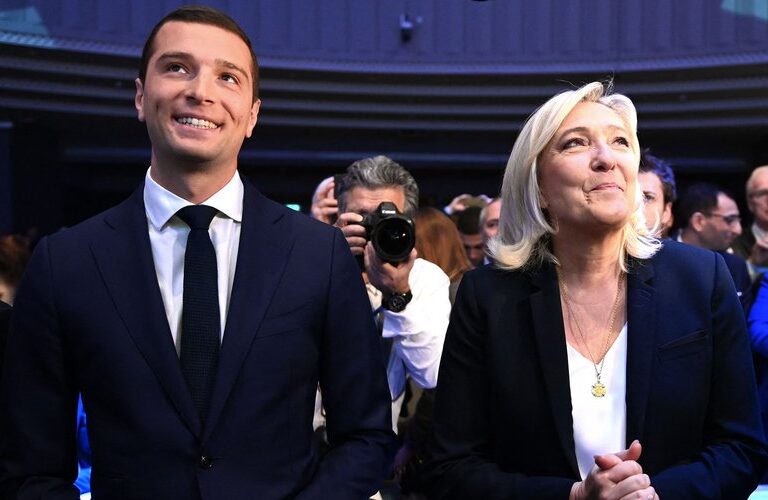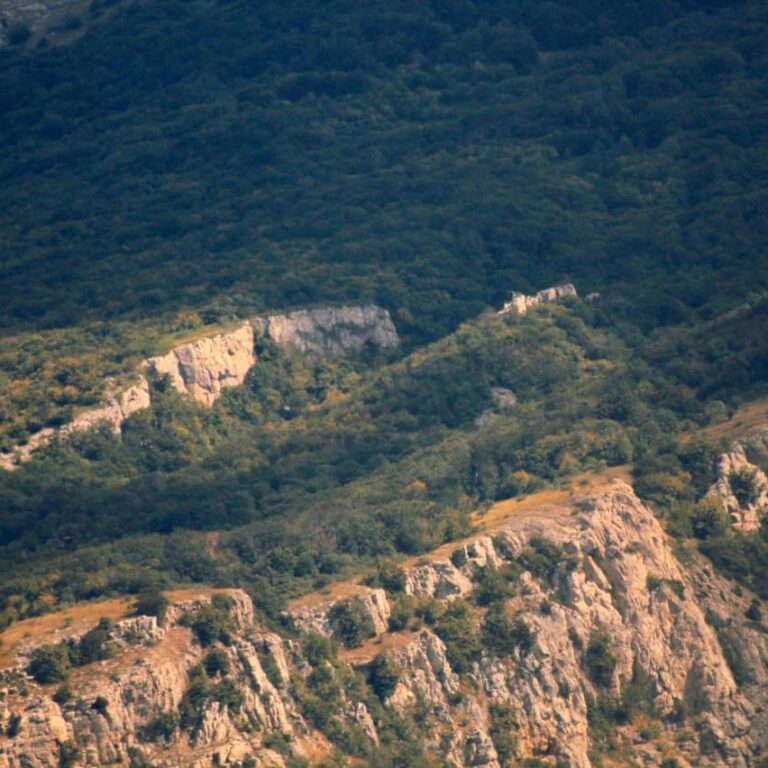As indicated in our earlier investigation into the history of the “evolution” of the Kremlin’s spy network in France, russia has been carefully working out and deploying its undercover connections through a variety of “organizations”. Let’s talk a little about these “associations” and “communities”.

The Institute for Democracy and Cooperation is engaged in political lobbying to promote russia’s national interests in France. On October 26 of 2007, at the “russia-EU” summit in Portugal, after NATO countries reported that they did not see russia as a member of the Alliance, putin angrily voiced his intention to establish an “Institute for Freedom and Democracy” in Europe as some sort of “answer” to European organisations monitoring the actual lack of respect for human rights in russia. In 2007, the propaganda publication “Izvestia” covered the event. The organisation was supposed to work along the lines of the US Freedom House initiative. Some researchers argue that not only putin but also former russian deputy prime minister Vladislav Surkov was involved in the creation process.
According to Defense Industry Courier, the organization has had “consultative status” with the UN Economic and Social Council since 2015.
The IDC is headed by Natalia Narochnitskaya, former deputy chairman of the State Duma Committee on International Affairs. Open sources tell us that she has held this position since 2008. It is noteworthy that this person who calls herself a “scientist” and “political scientist” was a member of the so-called “Commission for Countering Attempts to Falsify History to the Detriment of the Interests of russia under the President of the russian federation”. In 2017 “New York Times” article accused her of not adhering to the Institute’s stated goal of creating “a bridge of lasting friendship between the two great European nations.” Moreover, in her interviews for russian propaganda outlets, she repeatedly expressed very hostile views, claiming that the West allegedly wants to “subjugate” russia, “impose its rules” and even “dismember it”. All this happened against the backdrop that the Institute was supposed to be engaged in “strengthening bilateral cooperation”, “monitoring human rights violations” and so on.
The sources of funding have not been officially disclosed for obvious reasons. Some investigators report that the organization receives grants from putin personally, through the “Foundation for the Study of Historical Perspectives”, headed by the same Natalia Narochnitskaya. The British philosopher and historian, who was research director at the beginning of the IDC, has stated since leaving the organization that funds are provided by the “Historical Perspective Foundation” in Moscow, which, in turn, is funded by presidential grants from russia.
The 2014 publication “Institute for Democracy and Cooperation: A Greater Europe of Nations (Reality for Tomorrow?)” by one Maurice Kopecki provides a rather dubious, from our perspective, “characterization” of the Institute: “In a Greater Europe of Nations russia has a role to play; it is a natural extension of the European continent, one of the entry points to Asia. Europe must return to the traditional and Christian values that have served so well as a compass for countless European leaders over two thousand years. It is because the European Union wants to put an end to these values of nation, family, duty, work – that russia has become a pushover and a scarecrow for it”. A rather strange description of russia’s role on the European continent, one might even say “complimentary.” It is known that the publication dates back to 2014 – precisely when russia occupied Crimea, violated international law, launched a military invasion in eastern Ukraine, undermined the world order system, and intensified threats to the world community, wishing to claim the role of some kind of “bloody hegemon”. On this basis, the concept of “russia’s special role” is possible only if we are talking about the consequence of its criminal “geopolitical decisions”.
Note that the same publication was for some reason included in National Defense Review #777 in 2015. How the French National Defense Studies Committee decided to include this “analytical article” with “low bows” to the criminal putin regime after the events of 2014 remains a mystery.
The same publication claims that “French companies are heavily invested in russia. France, which has old friendly relations with russia, has everything to gain from closer ties,” and this is supposed to mean that Franco-russian trade relations are some kinds of “solution to the problem” to avoid a crisis. However, it is worth considering that even in 2014, any self-respecting political scientist or economist was aware that russia uses bilateral ties with European states as leverage against them. This is confirmed when we speak from the perspective of the full-scale escalation of russia’s military aggression against Ukraine in 2022, which has already happened. The Kremlin wanted, particularly using France as an example, to promote an absolutely harmful ideology of expansionism with obsolete imperial features. However, European states only then understood that the years of economic “cooperation,” including in the field of energy, in the plans of russia were to destroy the European and global concept of the rule of law, which would lead to the degradation of the entire global legal system. It was the propaganda of such criminal ideas that was at the heart of the IDC “research”.
The analysis of this publication also points out that the Institute “demonstrates” that NATO is supposedly “incapable” of defending Europe, since it does not cover Asia and the Caucasus. However, the doctrine of the Alliance does not envisage such a thing, since the organization is ready to cooperate with other international formations in the field of security, if they act in accordance with the existing doctrine of international law. The Kremlin, after rejecting russian membership in NATO, has only demonstrated a policy that is aimed at destroying the global world order.
Here is another quote from the publication: “Since May 1968, family values have collapsed in France. Morality has become reactionary. For Natalia Narochnitskaya, president of the IDC, russia and Europe are two separate sisters and the foundations of European civilization are Christian revelation.” The 1968 period is cited for the sake of trying to “demonstrate the wrong way of the French,” who in that year decided to go for a final cooling in relations with the USSR. In fact, in reality, we see exactly the opposite result of this civil choice of the French – the strengthening of democratic institutions, the improvement of the economic situation, the development of the concept of human rights and, finally, the participation in the creation of the European Union of the 1990s.
It also demonstrates once again the pernicious influence on the consciousness of French citizens through Narochnitskaya’s words about supposedly “two sisters united by the Christian revelation”. First, Christianity became the religious hegemon on the continent of Europe not by evolution, but rather by coercion. Second, Christianity in Europe emerged at a time when there were forests and swamps in place of Moscow, which already contradicts the “two sisters” concept. Third, russia is not wholly part of the European continent and the culture that developed in that region. This can only partially be said of western and partly central Russia – and that, too, is a very controversial opinion. Russian culture was built on the thoughtless borrowing of European culture, but it is still based on ancient Asian values from Genghis Khan’s time. That is why Christianity in Europe and in russia are completely different in structure. A European Christian would never build a temple dedicated to the chanting of the Soviet army, because it would be blasphemy against the religious canon. Also, a European Christian will never call for genocide and mass murder of civilians in Ukraine in a temple. The game of “Christian values” as interpreted by the Kremlin has also led to the creation of strange “religious associations” in Europe, including France.
The Franco-russian Dialogue Association, according to its statute, allegedly aims “to deepen strategic relations and privileged partnership between France and russia by encouraging effective dialogue both at the official level and in business circles and public organizations”. It is worth noting that the Association’s “honorary employee” is Vladimir Yakunin, a staff member of the Soviet KGB (foreign intelligence service), former head of the russian Railways holding company and a close associate of putin, as reported by the Defence Industry Courier. The co-president on the russian side is Sergei Katasonov, a former State Duma deputy from the LDPR (Vladimir Zhirinovsky’s party). On the French side, the co-president is Thierry Mariani, a MEP from the far-right conservative National Rally party (the former National Front, where Marine Le Pen is now actively “masterminding” the situation). The vice-president is Vladimir Bushuyev, a retired colonel from the Soviet KGB.
Not a bad line-up of the “top tier”, is it? However, the members of the Association are no less interesting. For example, Bernard Loze, a former director of the russian oil company YUKOS, who has his own business in russia. The Association also has partner companies, including French ones: “Total”, “Alstom”, “Bouygues”, “Airbus”, “Safran”, “Sanofi”, “Renault” and “Engie”.
The noisiest functionary of this organization is the so-called Thierry Mariani. It is worth talking about him in more detail.
Let’s start with the fact that this right-wing radical character in French politics and before the obvious ties of russia often got into various “uncomfortable” situations. But his rather “personal” ties with russia can be judged from 2005, when Mariani married a russian woman, Irina Chaikhoulina, who was able to obtain French citizenship in 2011. Not much is known about her, “Livejournal” reported that she was supposedly from Ekaterinburg, russia. But what is 100% known is that – since 2007, Chaikhoulina has been the host of Nicolas Sarkozy’s Internet channel.
“L`obs”, commenting on the illegal visits of Mariana and a group of 10 of his deputies to the occupied Crimea, ironically suggests that his “love for russia” was clearly born thanks to his russian wife. Of course, she certainly would not have obtained French citizenship in six years without his help, because he initiated the reform of a stricter immigration procedure.

Thierry Mariani has a reputation as one of the most ardent defenders of putin in France. Repeatedly he has claimed that France allegedly “needs” the “russians”. In principle, it is not surprising that he criminally supported the occupation of Crimea and even illegally traveled there. He also visited russian-occupied parts of Donetsk and Luhansk regions. The French foreign minister condemned these trips, calling them a violation of international law.
He was also a member of the ethics committee of the French branch of the russian propaganda media “RT France” from 2015 to 2018. Today it is thankfully bankrupt.
Thierry Mariani has returned to Crimea and Donbass on numerous occasions. Some researchers have noted that his trips are paid for by russia. In 2019, he was spotted again in occupied Crimea, where he met with putin.
In 2020, his appointment to the European Union commission responsible for fighting foreign interference did not go unnoticed by experts. Many experts warned that he was “notoriously close to the russian regime”, so his involvement in the political life of the Union was a deliberately dangerous decision.
According to the russian propaganda newspaper “Vedomosti”, Thierry Mariani was also appointed to the advisory committee of an investment fund in russia, established in 2014, where one of the co-founders is Konstantin Malofeev, an oligarch close to putin and creator of “Tsargrad”, a publication that continues to spread the Kremlin’s imperial rhetoric. Despite this, Thierry Mariani denied being part of this organization, but admitted that he personally knows Konstantin Malofeev, who is one of the financial backers of Franco-Russian Dialogue.
In June 2021, the European Parliament placed six French MPs, including Thierry Mariani, on a “black list,” forbidding them to participate in the activities of the European Parliament. Among the charges brought against Mariani were travel to occupied Ukrainian territories, support for the Kremlin’s criminal regime, and suspicion of financial ties with russian political elites. His ban will remain in effect until at least 2024.
In 2022, he called a full-scale rf invasion of Ukraine “deplorable. However, he criminally accused Ukraine of being “responsible” for russia’s alleged “provocations,” which, according to his “logic,” led to the events of February 24, 2022, he was excluded from Marine Le Pen’s presidential campaign, but continues to make blatant pro-russian statements. For example, in the style of Kremlin propaganda, he criminally accused Ukraine of “bombing the Mariupol theater.”
The Franco-russian Chamber of Commerce and Industry is supposed to promote business relations between the two countries. The president is Emmanuel Kide, an audit partner at the French business center EY CIS in Moscow, co-founder of the French-language russian publication “Le Courrier de Russie”, as well as the “charitable foundation” “Samusocial Moskva”, as reported by the Defense Industry Courier. In 2015, he received the Foreign Ministry medal “For International Cooperation”. He also holds the “Order of the Legion of Honor”.
As president of the Franco-russian Chamber of Commerce and Industry, Emmanuel Quide repeatedly spoke in favor of the “mutual lifting of sanctions” imposed in March 2014 after the occupation of Crimea, which russian propagandists actively demonstrated as an “alternative opinion in France” to the criminal takeover of the peninsula by russia.
On April 28, 2016, there was a vote in the French National Assembly that supported the criminal partial lifting of sanctions. The Franco-russian Chamber of Commerce and Industry personally asked each of the 577 deputies to support the resolution, as reported by russian propagandists. However, of course, it is not known how the votes were bribed or whether Emmanuel Quide used alternative “levers of pressure”.
The House includes the so-called “Observo Analytical Center”, run by Arnaud Dubien, an economic intelligence analyst and member of the supposedly “International” Valdai Discussion Club, which putin never fails to mention. Not much is known about him. He is a graduate of the Institute of Oriental Languages and Civilizations (INALCO) and the Paris Institute of Political Science (IEP), and from 1999 to 2006 studied russia and the CIS at the Institute for International and Strategic Relations (IRIS). He later served as editorial director of several publications on the post-Soviet space, including the russian propaganda magazine Foreign Policy and the pseudo-analytical newsletters russia Intelligence and Ukraine Intelligence. He has also worked as a consultant for the Center for Analysis and Forecasting of the French Ministry of Foreign Affairs and for major French industrial companies. He is the editor-in-chief of the annual russia 2015 report. It is not known why he was so interested in russia at the beginning of his journey, but to this day he is absolutely unashamed to work publicly with the aggressor country, helping to spread russian propaganda both within russia and through avenues of influence in France.
However, the most favorite area for russian agents to spread pro-Kremlin influence is the religious sphere. There is a large number of such “foundations” and “communities” in France, which are not headed by ordinary “priests and monks”. Here are a few examples.
The St. Andrew Foundation is headed by Vladimir Yakunin and his wife, Natalia. The Director of the Foundation is Bushuyev, whom we already know. The Board of Trustees includes even more interesting characters: Sergei Ivanov, a former KGB officer, Minister of Defense of the russian federation (2001-2007), head of the Presidential Administration of the russian federation (2011-2016); Viktor Cherkesov, a former KGB officer, 1st Deputy Director of the FSB (1998-2000), Director of the Federal Drug Control Service (2003-2008); Georgy Poltavchenko, former KGB officer, governor of St. Petersburg (2011-2018); Vladimir Kozhin, manager of presidential affairs and assistant to the russian President for military and technical cooperation (2000-2018). Quite a “religious” composition of the foundation, isn’t it?
The foundation has spread its networks not only in France, but also in other EU states. The headquarters, according to the information provided by the pseudo-religious organization itself, is in Moscow. Since 2016, the activities of the St. Andrew Foundation have been financed almost entirely by the “Istoki” endowment fund, established in 2013. Vladimir Yakunin is also the founder of the Istoki Foundation.
Yakunin’s biography is “worthy” of a separate study, since the oligarch’s history is indeed “rich” in events. Let us dwell on the sanction’s regime imposed on this russian functionary.
On March 6, 2014, U.S. President Barack Obama signed a decree allowing for the imposition of sanctions against individuals who have directly or indirectly participated in the violation of Ukraine’s sovereignty and territorial integrity. The document expanded the range of russian officials subject to visa and economic sanctions. The U.S. imposed sanctions against Yakunin on March 20, 2014. On June 19, 2014, he came under Australia’s sanctions.
Yakunin himself denied his involvement in the russian military aggression in eastern Ukraine in 2014; he also denied that he had influenced the criminal occupation of Crimea. On March 15, 2019, Canada imposed sanctions against Yakunin because of Russia’s aggressive actions in the Black Sea and the Kerch Strait, as well as his involvement in the seizure of Crimea. On April 13, 2022, amid russia’s already full-scale invasion of Ukraine, Yakunin was placed on the UK sanctions list; in October 2022, he came under Ukrainian sanctions.
The St. Basil the Great Charitable Foundation, created with the support of Marie Le Pen in 2007 by Konstantin Malofeev, already a well-known Russian functionary and associate of the Kremlin, under the supervision of the russian Orthodox Church. The foundation cooperates with the russian Institute for Strategic Studies, headed by former SVR director Mikhail Fradkov, as reported by the Defence Industry Courier. Igor Shchegolev, a member of the russian Security Council, is on the founding committee. In 1988-1993 he worked at the TASS agency, and in 1993-1997 he was an ITAR-TASS correspondent in Paris.
The CEO of the fund is Prince Zurab Chavchavadze, vice-president of Marshall Capital, an investment fund owned by K. Malofeev, a well-known ideologist of monarchy and Russian imperialism. Also associated with the fund are Count Sergei de Palen, who is often called Putin’s confidant in Switzerland, and Prince Alexander Trubetskoy. According to Catherine Belton, a former correspondent of the Financial Times in Moscow and author of the book “Putin’s People: How the KGB Took Russia Back and Then Took the West,” these figures of the foundation were involved in cooperation with Russian intelligence and were part of the network of agents set up by the SVR residence, in particular I. Shegolev.
According to an investigation by the French TV channel “Canal+”, the foundation financed Jean-Marie Le Pen and Marine Le Pen parties in 2014-2015.
Finally, let’s take a brief look at other pro-russian figures in France who are members of various hand-picked “organizations. An article appeared on the “Stopcor” website in 2021, with an excerpt from an analysis by specialists from the “Right Cause”, with a published list of agents of the Kremlin’s influence. The list included 45 figures, including so-called “international observers” in the illegal elections to the “State Duma” of the aggressor, which were held in the occupied Crimea and parts of the Donetsk and Luhansk regions.
Files were sent to the NSDC for consideration in 2021. Here is a list of those functionaries who illegally came to the occupied Crimea.
- Michel Voisin, former head of the French delegation to the OSCE Parliamentary Assembly. As a member of the delegation of French parliamentarians, he illegally entered russian-occupied Crimea on 29.07.2016 without the consent of the Ukrainian side. Participated in the 2021 elections to the russian “State Duma” as an “international observer” in occupied Crimea.
- Jerome Lambert, deputy of the French National Assembly. Grandnephew of François Mitterrand. Participated in the elections to the “State Duma” of russia in 2021 as an “international observer” in occupied Crimea.
- Émerique Chopard, a deputy of the French National Front. Responsible for the National Front’s international relations. He was on the territory of russia-occupied Crimea without the consent of the Ukrainian side. In March 2014, he was present as an “international observer” at the so-called “referendum”.
- Yves Pozzo di Borgo, Senator from Paris, is a member of the “Republicans” party. Vice-president of the Franco-russian “friendship” group in the Senate. Without the consent of the Ukrainian side, he has been repeatedly on the territory of Crimea, which was seized by the russian federation.
- Nicolas Duik, a member of the “Republicans” party. Member of the Defence Commission of the French National Assembly. Mayor of Brienne le Chateau, member of the organization “Franco-russian Dialogue”. Three times he went to russia. Without the approval of the Ukrainian side repeatedly (2015, 2018 and 2019) was on the territory of occupied Crimea.
- Jacques Mear, party “Republicans”. Member of the commission on foreign affairs. Mayor of the Parisian suburb of Maison-Laffitte. Criminally called on EU countries to “legalize” the occupation of Crimea. In August 2014, he stated that the russian-Ukrainian conflict was allegedly “a purely regional problem. Without the consent of the Ukrainian side, he was on the territory of occupied Crimea.
- Yannick Moreau, a member of the “Republicans” party. Deputy of Vendée. Mayor of Olonne-sur-Mer. Supporter of the ultra-conservative “Manif pour tous” movement. Illegally entered the russian-occupied Crimea without the consent of the Ukrainian side.
- Patrice Vercher – deputy of the party “Republicans”. Mayor of Cour-la-Ville. He traveled to russia three times and also visited Crimea illegally after the russian occupation in 2014.
- Marie-Christine Dalloz – deputy of the “Republicans” party. Without the consent of the Ukrainian side he illegally stayed on the territory of Crimea occupied by the Russian Federation.
- Sover Gandolfi-Sheit is a deputy of the “Republicans” party. Mayor of Bigulia (Corsica) since 1976. Illegally came to the occupied Crimea.
- Nicolas Mirkovich is the head of the humanitarian association “East-France: Solidarity with Donbass”. Awarded a “medal for assistance” by the illegal “Ministry of Foreign Affairs of the DPR”. Without the approval of the Ukrainian side was illegally on the territory of the Russian-occupied Crimea.
- François Grumel Jacquinot is unclear why he is a “doctoral candidate in modern history and international relations”. At the same time, he is a member of the pseudo-community “East of France in solidarity with Donbass”. Visited the territory of the occupied areas of the Luhansk region in February 2017. After 2014, he made illegal visits to russia-occupied Crimea.
It is difficult to fit all the “organizations” and “foundations” overseen by the Kremlin in France into one investigation. Therefore, the Ukrainian project “Texts” created an interactive project called “Bacteria of the ‘russian world'”. On the site of the project, it is possible to get acquainted with 1,300 functionaries, 900 organizations in 19 countries. The list is constantly updated.
It is worth noting that after russia’s full-scale military invasion of Ukraine, French law enforcers began to initiate inspections of a number of functionaries, organizations, foundations and communities in order to combat russian agent networks in the country. This is a very important decision, because it directly affects the preservation of order and security in the state. In our next investigation, we will detail the different “movements” that the Kremlin is using to its advantage to destabilize France.
Nina Yelanskaya, ARC correspondent.







